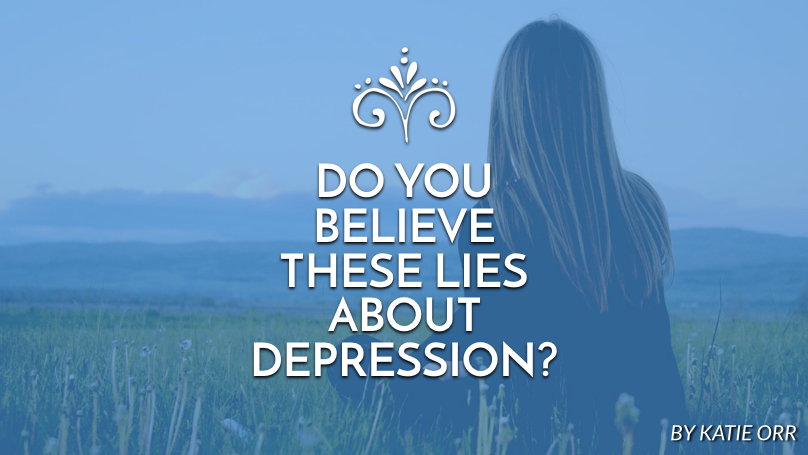The initial excitement of our move, my husband’s new job, and a new home filled with blank walls — awaiting a little HGTV-splendor — carried me only a few months before the reality of my burdened soul caught up with me.
So, my walls stayed bare.
For two years, boxes and boxes of cute decor and happy family pictures stayed packed away. It wasn’t for lack of time. I was a stay-at-home mom in a small community with very little to do. We hit the library once a week and that was about it, beyond church activities. And the walls didn’t stay bare from a void of desire or know-how. I had typically loved creating and decorating and making my home my own,especially my walls.
Yet the walls remained naked, and mocked me each time I walked by: “You should have your boxes unpacked by now.” Truly, the walls weren’t alone in the tormenting. My dirty van, un-done dishes, and the continual chaos of life with littles jeered at me, too. The pressure ran deep. I hadn’t recognized it quite yet, but I was depressed.
There is something about the “D-word” that is scary and a bit shameful — specifically as a Christian and especially as a woman in ministry. Admitting a struggle with depression can feel an awful lot like failure. I was in a depressed state for years. But because I was able to continue on as a functional adult, I assumed what I experienced was something other than depression.
Admitting reality was one journey, but once I did face the truth that I was depressed, I had another battle in front of me — the battle against the lies I believed.
“If I struggle with depression, I must be doing something wrong.”
“Depression is sinful; I must have an idol in my life which I cling to more than God.”
“If I am depressed, I must not be experiencing God enough … or He must not be enough for me.”
“Good Christians are not depressed. I should not be depressed.”
While I certainly had and still have many areas of sin in my life, I slowly began to realize that my state of depression was not a direct result of something I did wrong. My depression was real, but it was not my fault. It was most definitely linked to a hereditary predisposition to depression, compounded by many babies, life-transitions, and moves in a short amount of time.
After making several appointments — then canceling them when I chickened out — I finally sought help and accepted my reality: I have depression. I need help. I started taking medication and felt better within days. Yes, days! The main regret I have from that season is not getting treatment sooner. My empty walls began to be filled once more. The drive to complete tasks and create beauty returned. The continual and insatiable draw toward being alone or asleep began to be replaced with a yearning for meaningful relationships and rewarding activity.
Whether you are depressed or not, it is important that you recognize these lies. The more I open up about my depression, the more I realize how pervasive depression is. Chances are, even if you are not depressed, someone nearby is. And if you walk around holding to the falsehood that depression is sinful, then you are not a safe place for the woman in your church who is drowning.
Have you bought in to the lies of depression? Do you fear the diagnosis or the shame that might come with it? What other lies do you see surrounding this issue?
Published March 5, 2018



